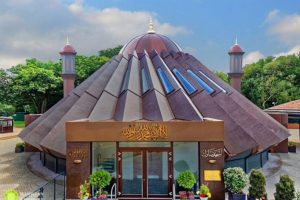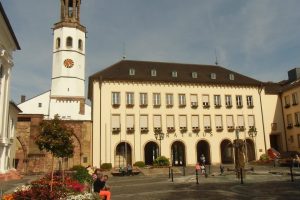
Sarah Waseem, UK
The 23rd of March is a very special day in the history of Ahmadiyyat. On this day in 1889, Hazrat Mirza Ghulam Ahmad of Qadian (as) established the Ahmadiyya Muslim community and accepted the initiation at his hand, of 40 faithful followers. That number has now multiplied hundreds of thousands of times over, and the community is established across the world. This is a day celebrated by Ahmadi Muslims all over the world.
For us in the UK, today also marks one year since the UK entered its first lockdown due to the Covid-19 pandemic. Commemorations are being held around the country to remember the lives of family, friends and colleagues who succumbed to this deadly virus. Many did so in the course of their services to the rest of us. Social care staff, NHS workers across the organization, teachers, retail staff and all those who continued working through the pandemic, tirelessly, to enable the rest of us live to carry on living our lives as best as we could.
During the pandemic we witnessed unparalleled acts of kindness – neighbors looking out for each other, faith and non-faith groups of all dominations ensuring that that food and medical supplies reached the most vulnerable, and even global organizations giving their services for free to keep us in communication as travel bans cut us off from one another.
An unprecedented effort has gone into designing vaccines that now mean we are in a quite different place from the one we were in last year. Despite some controversy surrounding them, vaccines have brought a renewed sense of hope, a sense that we can all look beyond and start to envisage a future.
I believe that for us in the UK, this anniversary marks a time to reflect on what we want that future to look like. What have we learnt about how we function as individuals, our personal strengths, and our vulnerabilities? How will we act on lessons learnt from the pandemic? Do we just return to where we were, or do we try and envision a new world order based on justice and equality, compassion and kindness?
As I reflected on this day, a BBC Online article showcased images from the day. At the top of the images was the image of the Fazl Mosque, which was the first mosque built in London in 1924. In the image in front of the Mosque, there are members of the Ahmadiyya Jama’at UK, along with front line workers, all praying or observing the moment of silence. In the picture, you see inscribed at the entrance of this mosque, the words of a revelation to the Promised Messiah (as) : ‘This house filled with our love is an abode of peace ‘. The symbolism is not lost in the picture, for the way out of these perilous times is through the connection with God, and serving mankind. And in this time, it is through the acceptance of the Promised Messiah (as).
For me as a British Ahmadi Muslim, today holds extra significance. Wouldn’t it be a blessing if those words written at the entrance to Fazl mosque were to resonate across the globe? What if our world were to become ‘filled with our love’? What if we were to plan our tomorrows together, regardless of nation and faith, in order to make this world an ‘abode of peace’ in our lifetime?
About the Author: Dr Sarah Waseem is a Clinical Psychologist with over 25 years experience in the NHS in both Primary Care and Secondary Care Settings. She is currently working in Women’s Health at an NHS London Hospital. She has also served as a senior editorial board member for the The Review of Religions for over 20 years.




Add Comment